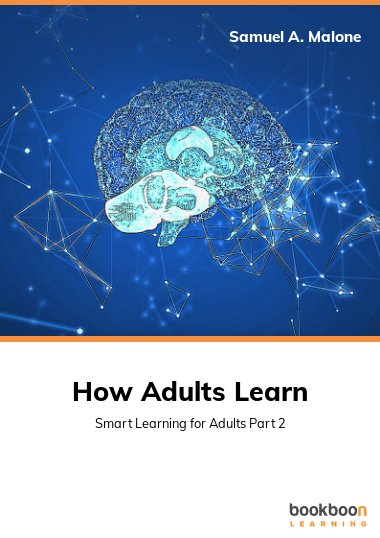This book is about how adults learn, how their memory functions and the techniques for improved learning. It includes acronyms, illustrations and quotations to help you on your journey of learning. Discover, how:
• Interruptions, chunking, and mental rehearsal helps you learn more effectively.
• The laws of association help you register and retrieve information quickly.
• The value of the Primacy and Recency effect in memory and of making things unique.
• Visualisation and mental rehearsal is as good an aid to learning as actually doing things.
• Self-testing is one of the most effective ways to master information.
• Reflection, or thinking about experiences will imprint them on our brain.
About the author
Samuel A Malone is a self-employed training consultant, lecturer and author. He is the author of 21 books published in Ireland, the UK and abroad on learning, personal development, study skills and business management. Some of his books have gone into foreign translations and second editions. He has an M.Ed. with distinction (in training and development) from the University of Sheffield and is a qualified Chartered Management Accountant (ACMA), Chartered Global Management Accountant (CGMA) and a Chartered Secretary (ACIS). He is a fellow of the Irish Institute of Training and Development (FIITD).

